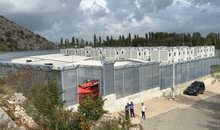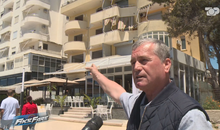
 Flash News
Flash News
Accident in Lushnje, four cars and a motorcycle involved
SPAK closed the investigations, Meta reacts: It was signed on the orders of Edi Rama
Defendant was taken from SPAK, Kryemadhi: Chief Prosecutor of BKH is Edi Rama
Laundered Çopjave money, arrested in Dubai Armis Stafa
The Democratic Party appeals the election results in Korça
VOA: Critics say that Serbia will benefit the most from the 'Open Balkans'
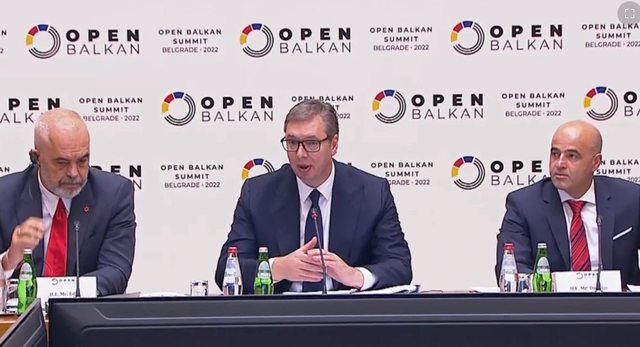
The meeting in Belgrade of the Open Balkans initiative, which was again held without Kosovo, was permeated by concerns about the coming winter, facing threats from the lack of energy and food due to the situation created in the world with Russia's war in Ukraine.
The participants put their signatures on agreements related to food security, understanding in the field of cinematography and audio-visual activities in the Western Balkans, cooperation in the field of mining and energy, as well as an operational plan in the field of civil emergencies.
The President of Serbia, Aleksandar Vučić, said that the success of the Open Balkans project depends a lot on how much peace and stability in the region will be strengthened.
"The Open Balkans initiative brings hope to this part of the world which has always been fraught with misunderstandings and conflicts at the best of times," said the Serbian president.
The initiative gathered the day before in Belgrade at a wine fair. Albanian Prime Minister Edi Rama said that yesterday was the most beautiful day in the Open Balkans.
"It could have been a typical bad day for the Balkans as a whole and instead of opening our doors to the people of work, to the people of the land, to the people of production, to the people of food and to many others from all over the world, we could We had opened the doors to another bad news, for tension, for conflict, for the risk of war and all in a row. Fortunately, the first happened," he said.
Prime Minister Rama referred to the beginning of the implementation of the agreement on free movement between Kosovo and Serbia, which since Thursday recognize each other's identification documents.
On this occasion, he evaluated the actions of the Serbian president, stressing that he "gave a very clear sign to everyone that the first choice is peace and the solution for the people", while underlining that there would have been no need to spend all that energy and all that time would be wasted if both Kosovo and other countries were in the Open Balkans.
Kosovo refuses to join the initiative in the first place because of the approach of Serbia, which does not recognize its independence, but also so that it does not become part of the initiatives that, as its leaders say, aim to replace the European integration processes.
The United States supports the initiative and has called on Kosovo to become part of it, but has underlined that it is an economic initiative that can only succeed if it includes all six Western Balkan states on the same level.
Takimeve të fundit në cilësinë e vëzhguesve u janë bashkuar përfaqësuesit e Bosnjës dhe Malit të Zi.
Presidenti serb, Vuçiç, kryeministri shqiptar Rama dhe kryeministri i Maqedonisë së Veriut, Dimitar Kovaçevski thanë se dimri që po vjen do të jetë një periudhë e vështirë, madje kryeministri Kovaçevski tha se do të jetë më i vështiri që pas Luftës së Dytë Botërore.
Ata u pajtuan të formojnë një komision të përbashkët për të ndihmuar njëri-tjetrin përballe kërcënimeve nga mungesa e energjisë dhe ushqimit, duke e cilësuar shumë të rëndësishme marrëveshjen për sigurinë ushqimore sipas së cilës çdo vendim i mundshëm për ndalimin eksporteve të drithërave dhe prodhimeve bujqësore, nuk do të përfshijë vendet anëtare të nismës. Po ashtu ata vunë theksin tek shkëmbimet energjetike.
The Open Balkan initiative, which until July of last year was known as the "Balkan Mini-Schengen", has provoked many reactions and evaluations from the most diverse, its critics put emphasis on the assertion that it is Serbia that is economically more powerful will benefit the most from this initiative. VOA
Latest news


70 Albanians from Kosovo and Albania are deported from Germany
2025-05-27 20:59:16



Italy/ 39-year-old Albanian man crashes to death while waiting to go to work
2025-05-27 20:15:03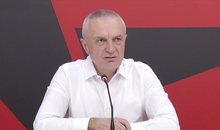
SPAK's accusations against Meta, AP: Former president openly critical of Rama
2025-05-27 20:09:47
Accident in Lushnje, four cars and a motorcycle involved
2025-05-27 19:44:24


Rama eating pasta, photojournalist reveals the story behind the viral photo
2025-05-27 19:13:56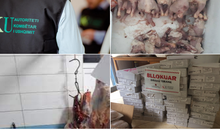
Meat with salmonella still on the market? AKU reacts: Fake news
2025-05-27 19:03:29
Violations of May 11, Lela: 'Database' ready, internationals are being informed
2025-05-27 18:47:40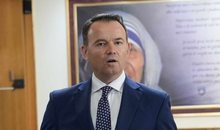
Scandal with animal products in Kosovo, Minister of Agriculture questioned
2025-05-27 18:47:24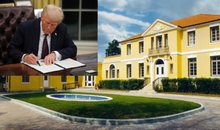
Congratulations... to the Albanian people
2025-05-27 18:20:00

"SP stole 2 mandates from us", Lapaj: Fier and Vlora regions must be recounted
2025-05-27 17:42:39

Kosovo takes control of another facility in Leposavic
2025-05-27 17:25:55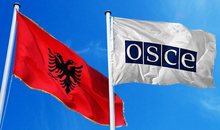


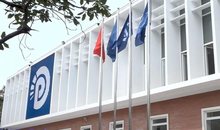
DP demands repeat elections in Gjirokastra and Vlora
2025-05-27 16:37:47
Should Berisha resign? Alimehmeti: Stages cannot be burned
2025-05-27 16:18:22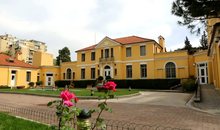
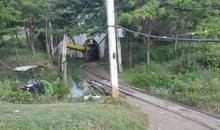

Sunscreen, five myths that endanger your health
2025-05-27 15:52:57
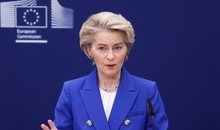
EC chief condemns Israeli attacks on Gaza: They are disgusting
2025-05-27 15:23:30

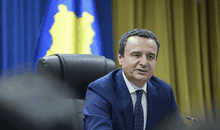

Defendant was taken from SPAK, Kryemadhi: Chief Prosecutor of BKH is Edi Rama
2025-05-27 14:47:32
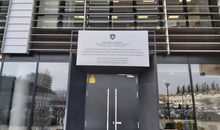
Police raid Kosovo's Ministry of Agriculture
2025-05-27 14:31:07
Laundered Çopjave money, arrested in Dubai Armis Stafa
2025-05-27 14:22:55
Tried to kill cousin in Italy? Case against Albanian from Kosovo closed
2025-05-27 14:12:33
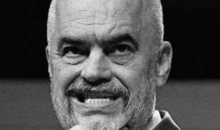
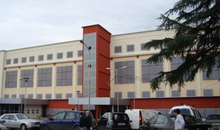

Prostitution network busted, Brazilian woman declared wanted
2025-05-27 13:31:20

SPAK took the defendant, Meta reacts: I eagerly await the start of the trial
2025-05-27 13:11:06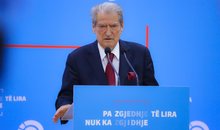

A party with a dead body inside
2025-05-27 12:51:40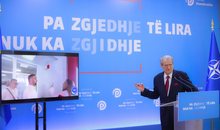

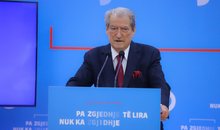

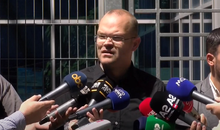
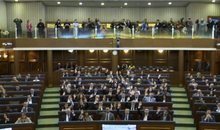
Session to constitute Kosovo Assembly fails for the 22nd time
2025-05-27 11:53:33
He passed away a few days ago, tributes are being held in honor of Artan Lame
2025-05-27 11:44:47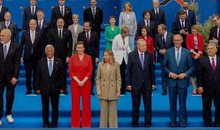
Reactions to Macron's slap
2025-05-27 11:32:35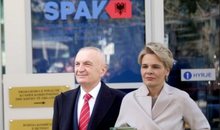

Greek notary killed with intent to rob her, 3 Albanians arrested
2025-05-27 11:11:25
Aulona Kalaja appears at SPAK, files a complaint for the forgiveness of fines
2025-05-27 10:58:24

Meta will use Europeans' posts for AI training
2025-05-27 10:42:07
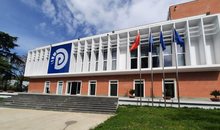
The Democratic Party appeals the election results in Korça
2025-05-27 10:23:11

Igli Tare appointed Milan Sporting Director
2025-05-27 10:03:54
Albanian caught with cocaine worth around 14 million euros
2025-05-27 10:00:56

Foreign exchange/ How much foreign currencies are bought and sold today
2025-05-27 09:40:13

Brussels presents 150 billion euro plan to strengthen EU defense capabilities
2025-05-27 09:14:33

He raped his minor daughter, 60-year-old man arrested (NAME)
2025-05-27 08:57:54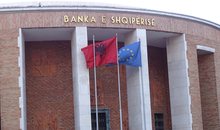

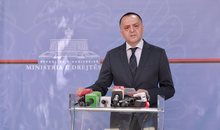
Artan Lame is being transported to his final residence today
2025-05-27 08:26:24
Horoscope, what do the stars have in store for you today?
2025-05-27 08:15:43
Weather forecast, sun and temperatures up to 29 degrees during the day
2025-05-27 08:01:32
Morning Post/ In 2 lines: What mattered yesterday in Albania
2025-05-27 07:47:24
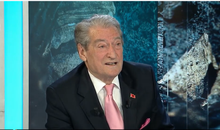



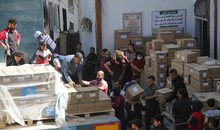
WHO calls for medical aid trucks to be allowed into Gaza
2025-05-26 21:46:31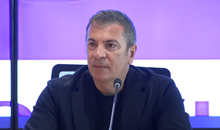
Did he want to burn it by running in Vlora? Gjiknuri: Rama experimented
2025-05-26 21:39:25
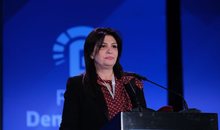
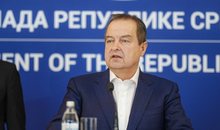
REL: Serbian police order for the arrest of Kosovo policeman, "very unreal"
2025-05-26 21:01:48

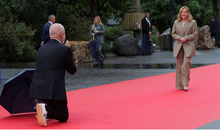

Milan officially announces the appointment of Igli Tara as Sporting Director
2025-05-26 19:43:14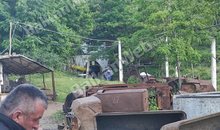
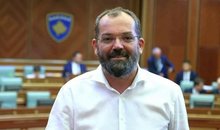
Former Kosovo MP released after being detained at border by Serbian authorities
2025-05-26 19:24:50
Magnificent buffet in Hanoi
2025-05-26 19:03:41

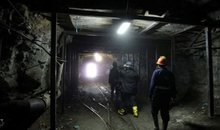

Migrant centers/ Kosovo government ready to discuss with the United Kingdom
2025-05-26 18:05:33

UN: Gaza in agricultural collapse, only 5% of land remains arable
2025-05-26 17:42:53
Former Ambassador: The US will react to the farce, it will upset many balances!
2025-05-26 17:34:26